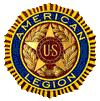Awards
We at Post 52 are proud of the programs the American Legion sponsors and supports. The American Legion recognizes the sacrifice of those on our home front that contribute to our quality of life by recognizing one individual from Fire, Law Enforcement, Emergency Medial, for their unselfish service to our Community and Country.
EMS of the Year
Due to other commitments EMS Jeff Bright was unable to attend the banquet. He will be recognized and presented his certificate at a later date that is convenient to his schedule.
Fireman of the Year
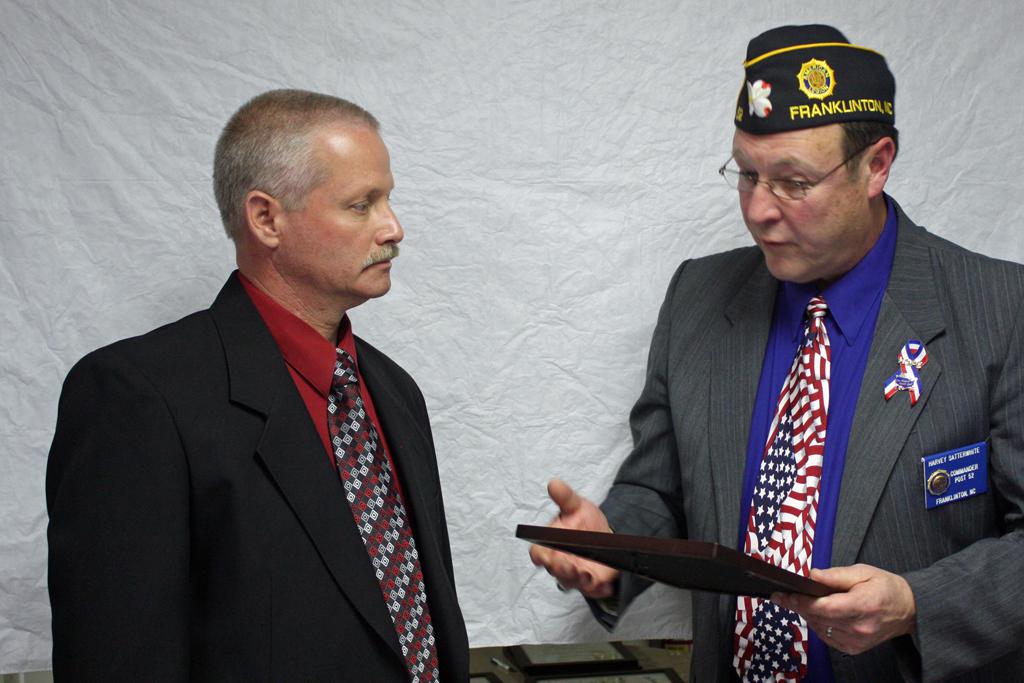
Billy Joe Brewer receiving his Franklin County Fireman of the Year award from Post Commander Harvey Satterwhite.
Law Enforcement Commendation
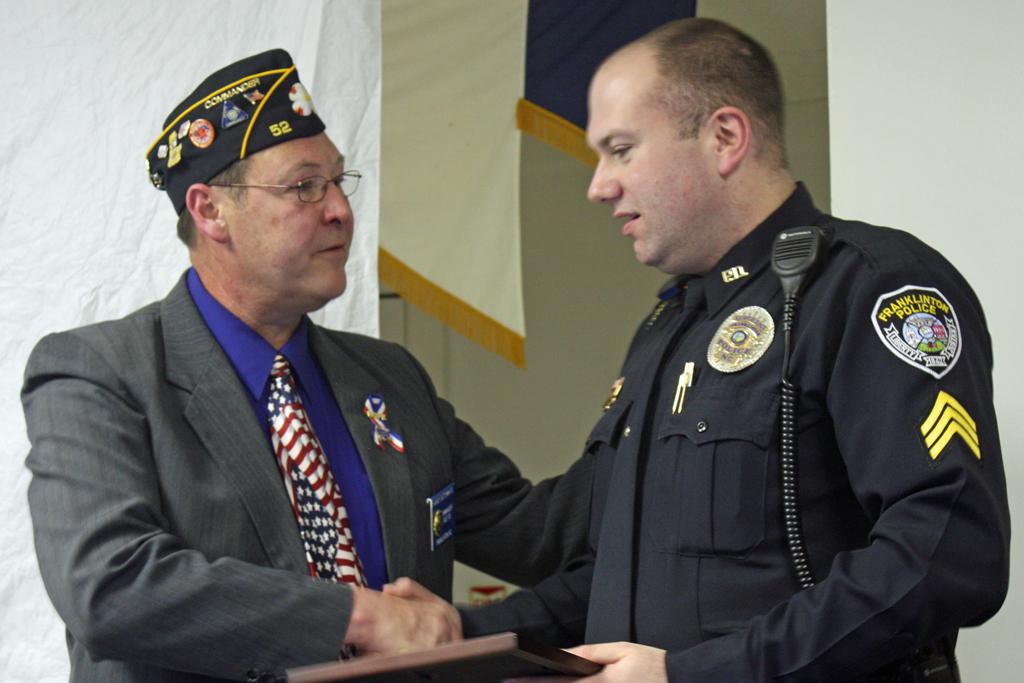
Commander Harvey Satterwhite presenting Sgt. Kevin Hornaday with his Law Enforcement Certificate of Commendation.
Soldier of the Year
Due to other commitments, Soldier of the Year, Sgt. Anthony R. Hudgins was unable to attend the banquet. He will be recognized and presented his certificate at a later date that is convenient to his schedule.
Community Service
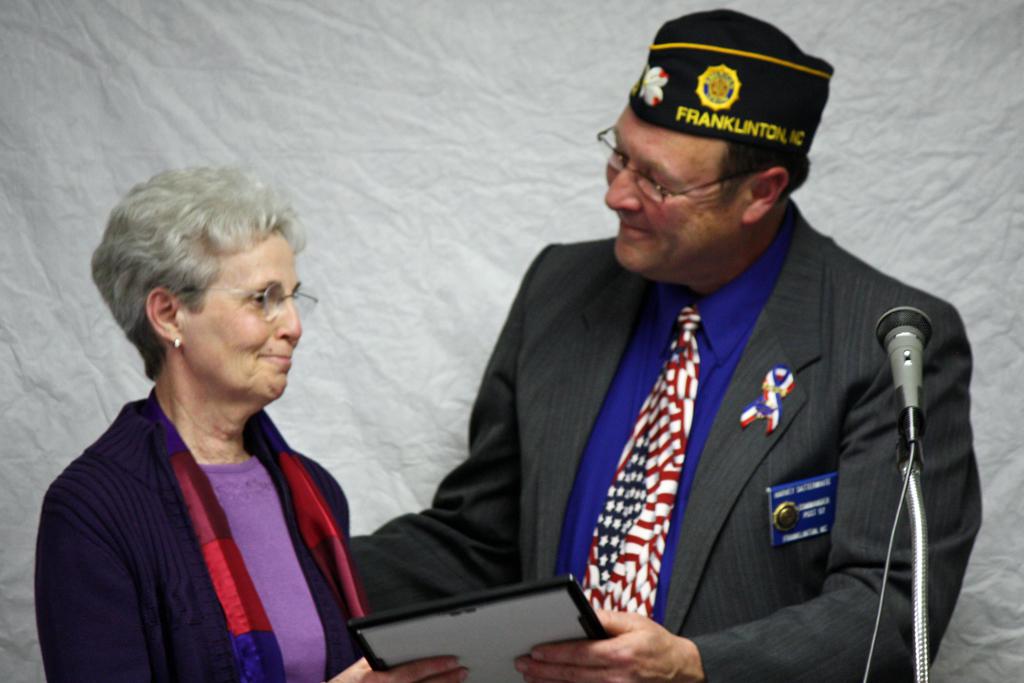
Ann Ijames receiving her Community Service Commendation from Post Commander Harvey Satterwhite.
Post Legionnaire of the Year
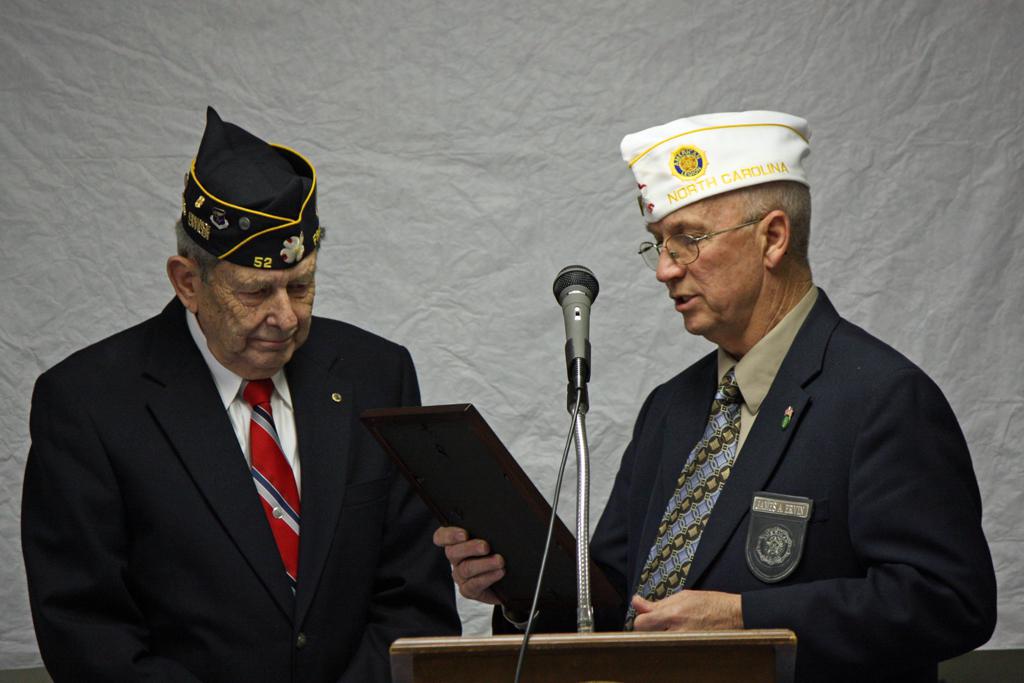
Brodie Green and Division 1 Commander James Irvin.
Other Recognition
Randi Gibbs, our 2011 American Legion National High School Oratorical contestant, gave her presentation on the Constitution. She was given a certificate of appreciation for her outstanding effort in winning both the Post and the District competitions.
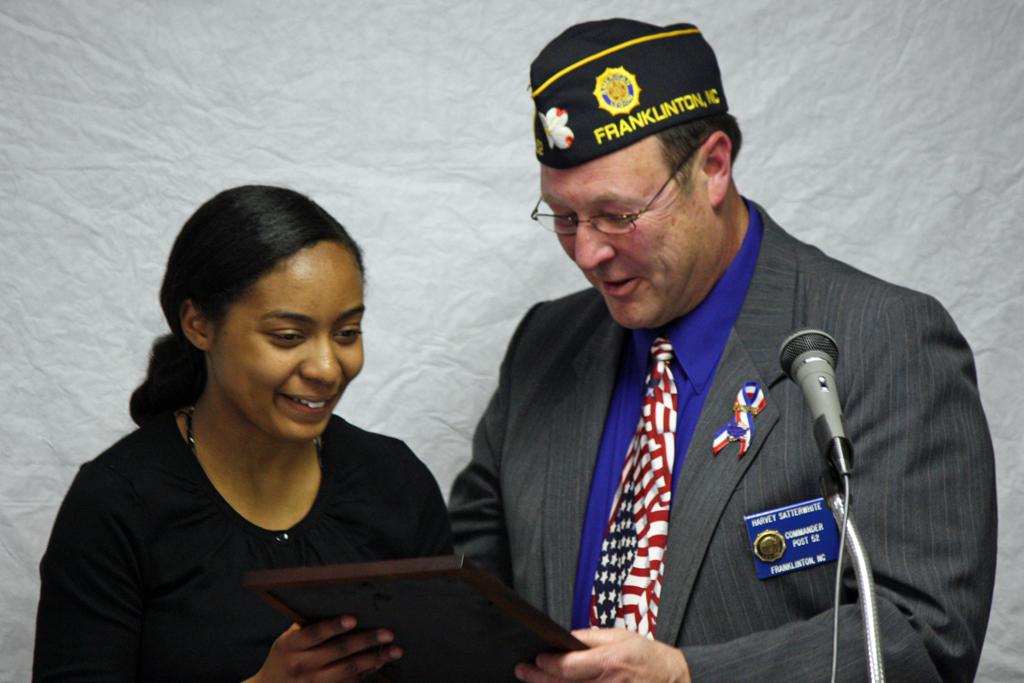
Randi Gibbs being presented a Certificate of Recognition for her participation in the American Legion 2011 National High School Oratorical Contest by Post Commander Harvey Satterwhite
Photos
To see additional photos of the Banquet click here.
